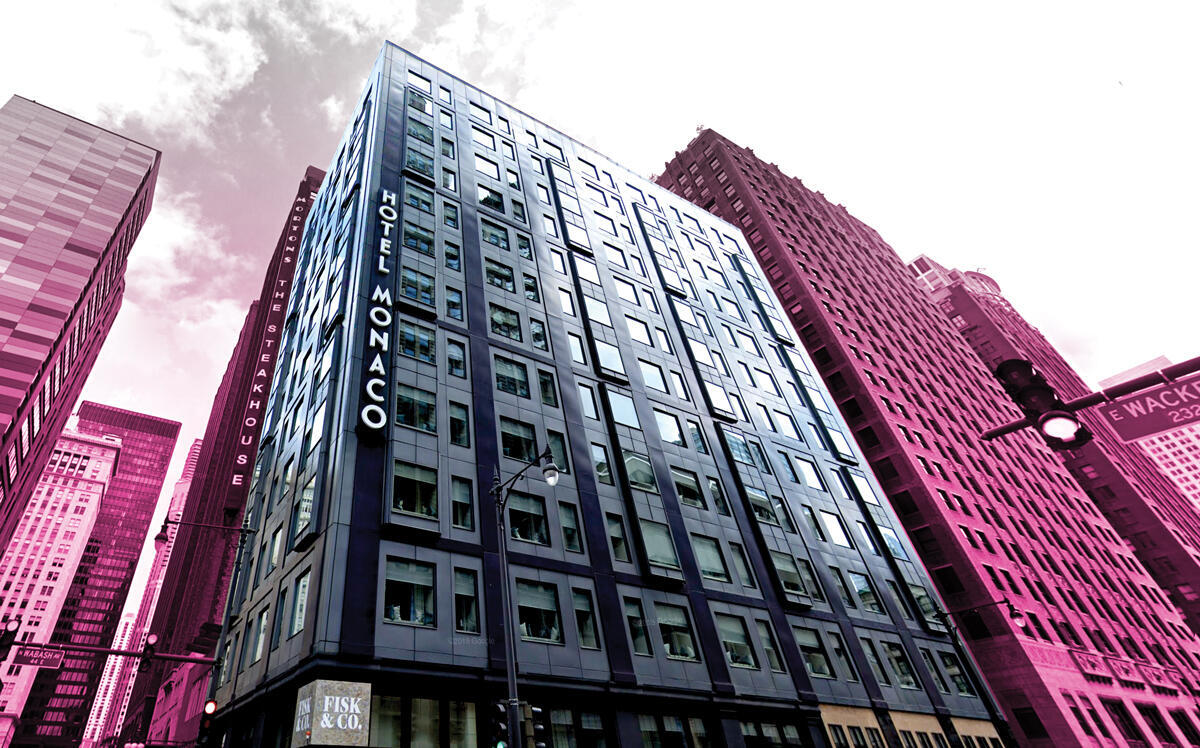Trending
Distress grows in Chicago’s hotel and office markets
Tired of waiting for recovery, owners look for buyers at any price

Call it capitulation, with a capital C for Chicago. Owners of distressed hotels and office buildings, weary of waiting for a recovery, are taking what they can get.
“Landlords with a lot of vacancies are certainly starting to make that choice,’’ said Lisa Davidson, a vice chairman at Savills. “There’s such uncertainty that if they can get out, they want to. So they’re putting it on the market now and cutting their losses.”
Offices, even those with few employees coming to work, have held up better than some other parts of the real estate market thanks to leases that are typically 10 years. Yet even they’ve had casualties, including the biggest downtown office default, the 45-story Civic Opera House at 20 North Wacker Drive.
Hardest hit have been hotels, as business and tourist travel remain mired at a fraction of pre-pandemic levels. That helps explain why the Kimpton Hotel Monaco is being sold for just $36 million, 35 percent less than its appraised value when it last sold in 2013. Xenia Hotels & Resorts, a Florida real estate investment trust, sold the 191-key property for the equivalent of $188,500 per room.
Some 51 percent of the city’s hotels are at least 30 days delinquent or in special servicing, a step toward resolving a debt, often by a sale. That puts the city sixth in the nation, according to Cred IQ, a firm that tracks commercial mortgage-backed debt. Portland, Oregon, is highest, at 58 percent, just ahead of Houston’s 57 percent.
“Big conventions have not returned,’’ said Laura Dietzel, a senior real estate analyst at RSM. “We definitely see that in terms of causing a slower recovery within the hospitality space within the central business district compared to other markets.”
Chicago also ranked sixth nationwide in distressed office buildings. Almost 10 percent of commercial mortgage-backed securities on properties are delinquent or in special servicing, according to Cred IQ, behind St. Louis, Hartford, Cleveland, Houston and Orlando.
Opportunity with risk
Granted, one developer’s woes can be an opportunity for others — assuming they have an appetite for risk, an eye for a bargain and lots of patience.
Take veteran developer Michael Reschke, dubbed the Harry Houdini of Chicago real estate by Crain’s for his almost magical ability to survive financial turmoil. He’s taking on what may be his biggest gamble yet, buying the 17-story James. R. Thompson Center from the state for $70 million and planning to update the building’s offices and potentially even convert upper floors into a hotel.

“A lot of people have questioned whether I have a screw loose or something,” Reschke told Crain’s. Despite record vacancy rates, however, “it’s a very rational — I think — well-thought-out project if you just study the project and what you’re working with.”
South Korea’s Lotte Group, among the Asian nation’s top five conglomerates, was the buyer of the Kimpton Hotel. Lotte Hotels & Resorts will probably rebrand the 191-room hotel at 225 North Wabash Avenue, Crain’s reported, citing unidentified people familiar with the matter. It’s among 20 hotels the conglomerate plans to open across North America in the next five years.
Sales are usually a better outcome for owners than losing a property to foreclosure, even at deep discounts, though price isn’t the only factor. The building’s quality and location are key.
Older buildings
Office buildings at 300 West Adams Street, 20 North Wacker Drive and 175 West Jackson Boulevard fell victim to a flight to quality, for example, said Joe Learner, another vice chairman at Savills.
“Those were buildings that were built in the early part of the 1900s in the West Loop, but they are older and less efficient,’’ Learner said. “It’s not as if there’s anything wrong with these buildings. It’s that there’s a certain amount of demand chasing an enormous amount of supply.’’
A venture of Pennsylvania’s Alliance HP, owner of a 254,000-square-foot building at 300 West Adams Street, transferred the leasehold interest to an entity managed by Morgan Stanley through a deed-in-lieu of foreclosure in November. New York investment firm 601W was hit with a $195 million foreclosure suit in October after failing to make monthly loan payments since May on the Civic Opera House at 20 North Wacker Drive.
The building at 175 West Jackson Boulevard, home to financial firms and the Chicago office of the U.S. Securities and Exchange Commission, faces “imminent default” as it struggles to stay current on debt payments. Brookfield Asset Management has $258.6 million of debt on the property in two commercial mortgage-backed securities. The loan was transferred in November to LNR Partners, the special servicer in charge of overseeing a workout.
And location isn’t just a cliche when it comes to determining which properties thrive and which struggle. The Fulton Market area has benefited as tenants upgrade their space. It’s also where most new office development is taking place.
Tough spot
“Workplace patterns have changed most dramatically,’’ said Joseph Schwieterman, a DePaul University professor who focuses on urban planning and directs the Chaddick Institute for Metropolitan Development. “You’ll see more clients either downsizing or moving to less costly spaces since the offices won’t be nearly as intensively utilized as before. So they’re going to be shopping based on price, and that puts building owners in a tough spot. They have to modernize, but they have to do it without pushing up rents a great deal.”
Already, office building owners are trying to convert some older properties to residential. Yet tearing out walls and replacing old floor plans isn’t a quick process. Some offices, especially in close-in suburbs, are also being converted to warehouses as e-commerce drives demand for so-called last mile locations.
Nevada industrial developer Dermody Properties agreed in November to pay $232 million for Allstate’s suburban Chicago campus. It plans to transform the site into 3.2 million square feet of warehouses.
Meanwhile, foreclosures and discounted sales of distressed properties have moved slowly as building owners agonize about whether the end of the pandemic and an eventual recovery is even in sight. Their patience — and ability to survive and service their debt — is dwindling.
“It will definitely get worse before it gets better,’’ said RSM’s Dietzel. “We’re just starting to see the beginning of foreclosures. Buildings have been sort of hanging in there. But as this pandemic continues, and people are not returning to the office, I think owners may be getting to that point of pain going from hanging in there to saying this turnaround is going to be too long and making the decision to walk away.”




